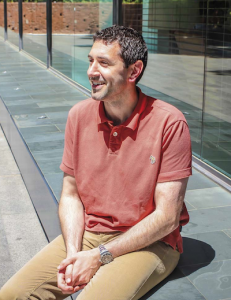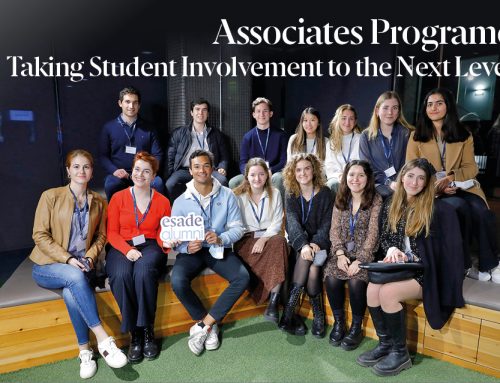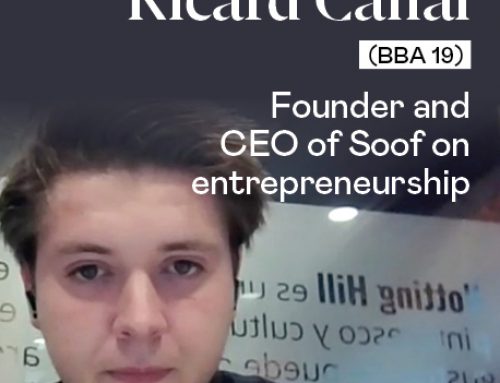II Germany ESADE Alumni Meeting

Monetisation, a subject traditionally and erroneously neglected in the corporate and business world, was the focal point of the ESADE Alumni Refresher Programme talk “In praise of smarter monetisation” given by Marco Bertini, director and associate professor in ESADE’s Department of Marketing Management during the II Germany ESADE Alumni Meeting, in Frankfurt.
The ESADE Alumni Germany Chapter organised this II Germany ESADE Alumni Meeting for all the alumni living in Germany. Iñaki Ocaña (Lic&MBA 06 / DARH 12), International Director of ESADE Alumni did the presentation; and Magnus Berrer (MBA 12), Finance at SAP, Dieter Gruen (MBA 10), Advisor Global Corporate Governance at Deutsche Bank and Eva María García (AMP 12), Customer Care and Aftersales, Sales Manager, Central and Eastern Europe, Opel/Vauxhall, Chevrolet and Cadillac, the closing remarks.
Many variables in monetisation
The impact of pricing is huge and yet it is usually managed with no specific strategy – and this can jeopardise a company’s brand or bank balance.
The big pricing question in any company is why the customer should choose us rather than any of our competitors.
There are several answers, most of which involve the cheapest price. Should we compete on the basis of the lowest price? Bertini said we should not, and then mentioned the research by Jagmohan Raju and John Zhang, which demonstrate that price wars are not the answer.
According to Marco Bertini, monetisation decisions should take many variables into account including not only economic but also psychological and sociological variables. Similarly, a company should not focus on a single area when making pricing decisions because it affects marketing, sales, finance, accounting, etc, equally.
”In general”, Bertini explained, “companies are good at creating value but not so good at doing it on the basis of price.
What should they do? First of all they must know their customer, particularly by using new technology, and channel all their efforts through the customer. But they have a lot to learn in this respect because the customer is still regarded as a transaction rather than a relationship”.
Five ideas
The five ideas or questions which the speaker believes monetisation must take into account are: multitasking, knowing one’s limitations, the customer always wins, being obsessed with making oneself stand out, and having a price for each customer. As regards multitasking, Bertini pointed out that only 5% of executives see price as a type of “conversation” with their customers. This means that they overlook an essential and basic channel of communication.
As for limitations, first they must be identified in order to use them as advantages. In other words, the speaker explained, having prices higher than the competition should not be a drawback. He then gave the example of major companies such as SKF of Sweden and Patek Philippe of Switzerland. As regards the saying, “the customer always wins”, Marco Bertini outlined the initiatives of companies such as Amazon, HP, Dollar Shave Club, Spotify, CBS and The New York Times, to name but a few, who analyse and set their prices according to the circumstances, and have no standard price list.
Differentation, the key
The next key area was differentiation. According to the speaker, the cost of a product or service is merely a reference, a tool for taking the right decisions. Competitors’ prices are not the best benchmark for setting the price of a product or service. Customers have the final word and are the ones who decide how far a company can go. “In the end, what really matters is the ability to understand and sell our differentiation”.
The last area in which monetisation can be improved, said the speaker, is to have a price for a specific customer: fencing. To explain this concept, the speaker gave several examples: an Indian telecom company that charges customers according to the time of day or place where they make calls; DropBox, in which pricing is individual and depends on the amount of storage space used; and the US insurance company, John Hancock, which applies different prices depending on whether the customer leads a healthy life or eats well, etc.
Alter the presentation, took place a networking cocktail for all the alumni.






